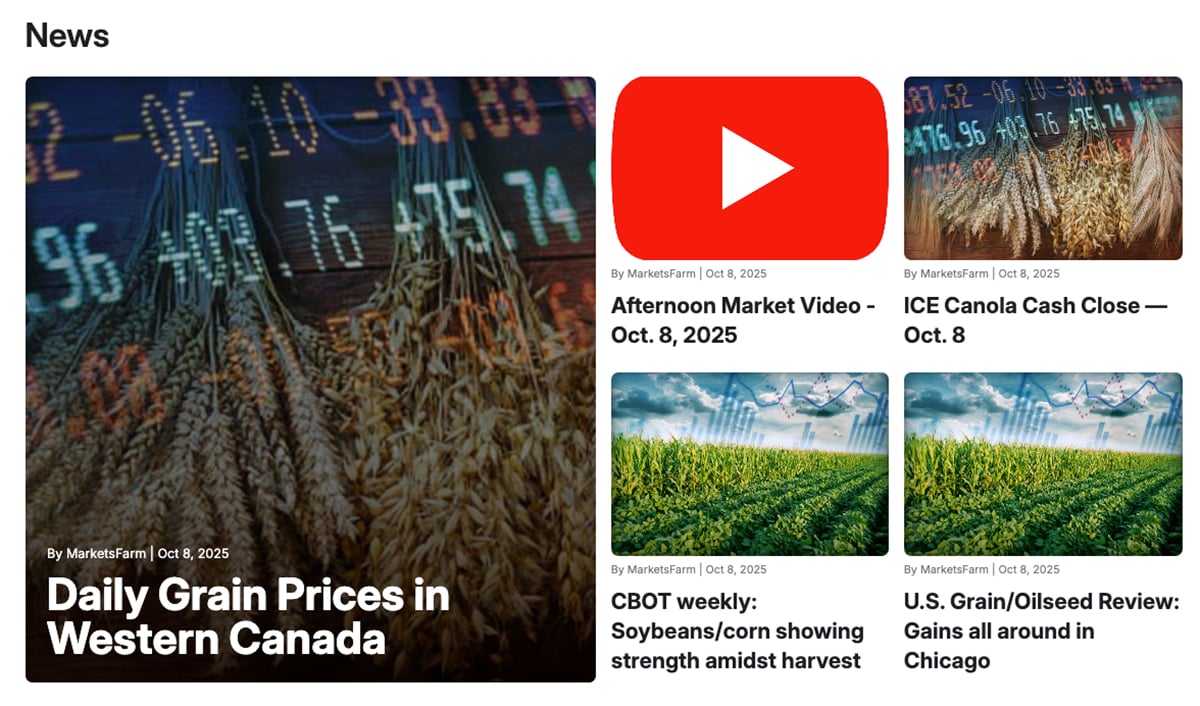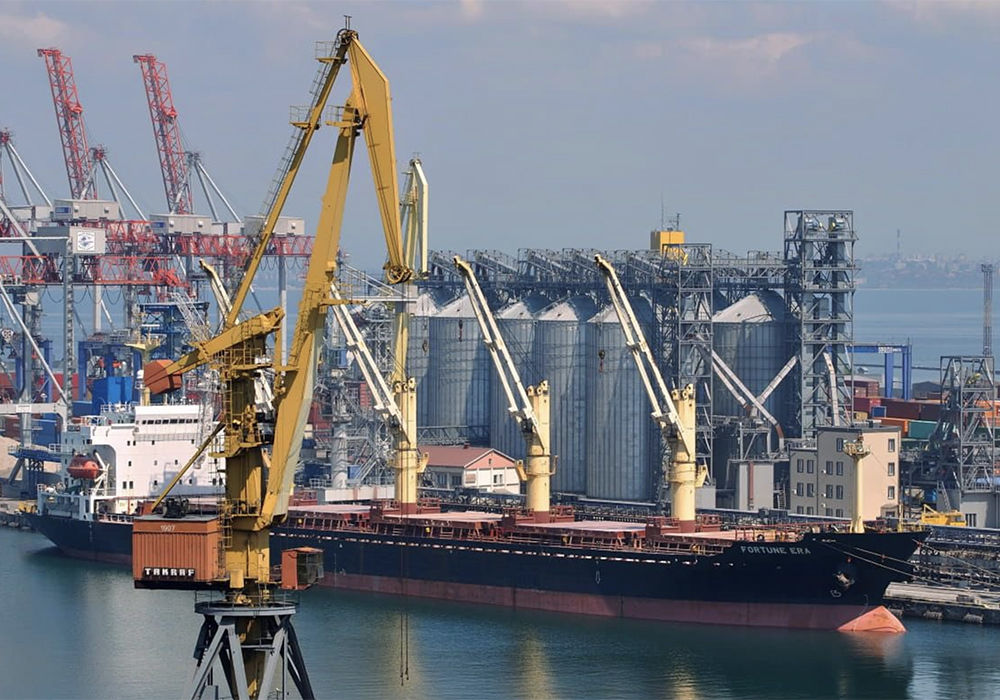Some think the market has been quiet due to large Aussie crop and infrequency of attacks; others say prices should rise
SASKATOON — Grain markets should be reinstating a Black Sea war risk premium, say analysts.
“I’m very surprised that we haven’t started to push a bigger premium into the wheat market, especially soft wheats, because of what’s happening,” said MarketsFarm analyst Bruce Burnett.
Related stories:
Russia has been stepping up its attacks on Ukrainian grain ships and ports. It recently shelled the Port of Odesa, killing one person and injuring eight others.
Read Also

VIDEO: Catch up with the Western Producer Markets Desk
The Western Producer Markets Desk provides daily updates on agricultural markets, with recent video commentary including looks into canola, wheat, cattle and feed grains.
“The enemy is once again attacking civilian vessels, grain storage facilities and terminals,” Andril Dykun, chair of the Ukrainian Agri Council, said in a news release.
The group claims Russia’s goal is to jeopardize food security, destroy Ukraine’s economy and remove Ukraine’s agricultural products from the world market, replacing them with Russian products.
“And then Russia will use these funds to equip its army and continue the war with Ukraine,” he said.
“We need to strengthen the protection of the sky over our country. We need further support from the international community.”
The port attack comes days after Russia struck a container ship at the port with a missile, killing eight people and injuring 11.
The ship was carrying 45 containers of packaged sunflower oil, which was humanitarian aid ordered by the United Nations to be delivered to Palestine.
There have been 60 similar attacks over the past three months.
“They resulted in damage and destruction of almost 300 port infrastructure facilities, 177 vehicles and 22 civilian vessels,” said the council.
“There were 79 civilian casualties. Among them are employees of ports, logistics companies and ship crews.”
Burnett said Ukraine is capable of inflicting similar damage on Russia’s grain shipping infrastructure.
He thinks Russia’s attacks should be garnering as much attention as the dryness issues with the Black Sea winter wheat crop.
“This is a potential issue for the wheat market to start to digest here,” he said.
“It could have a very significant impact on total exports from the region.”
The only explanation he has for why the market hasn’t responded to Russia’s escalating attacks on Ukraine’s grain infrastructure is that Australia’s harvest is looming, so there will be a bolstering of wheat supplies.
However, he would be nervous if he was one of the more than 40 countries that receive Ukrainian grain, including Egypt, Libya, Tunisia, Algeria, China, Vietnam, Indonesia, Spain, Turkey and the Netherlands.
Taras Vysotskiy, Ukraine’s deputy agriculture minister, forecasting 40 million tonnes of total Ukrainian grain exports in 2024-25, down from almost 51 million tonnes last year, according to Reuters.
The U.S. Department of Agriculture is forecasting 48 million tonnes of Russian wheat exports, down from 55.5 million tonnes last year.
“Not only do you have less grain to move, there may be less of it moving,” said Burnett.
“I think that’s a serious issue.”
StoneX analyst Arlan Suderman believes Russia’s attacks have not been frequent enough or damaging enough to concern grain markets.
However, he has read reports that insurance premiums jumped 30 per cent in response to the recent attacks and that some shippers are cancelling the use of their vessels in Ukraine’s Black Sea ports.
He too wonders if Ukraine will retaliate by attacking Russia’s grain exporting infrastructure.
“That is what has the potential to impact commodity prices to the upside,” Suderman said in a recent market outlook webinar.
Grain and energy shipments appear to be continuing at normal volumes for now, but it is a situation that needs to be closely monitored.
Suderman said there is no Black Sea war risk premium built into the market anymore, so any peace agreement would have minimal impact on prices.
“But if (Russia and Ukraine) continue to further escalate, that does risk the need for more war premium in commodity prices,” he said.
Contact sean.pratt@producer.com


















